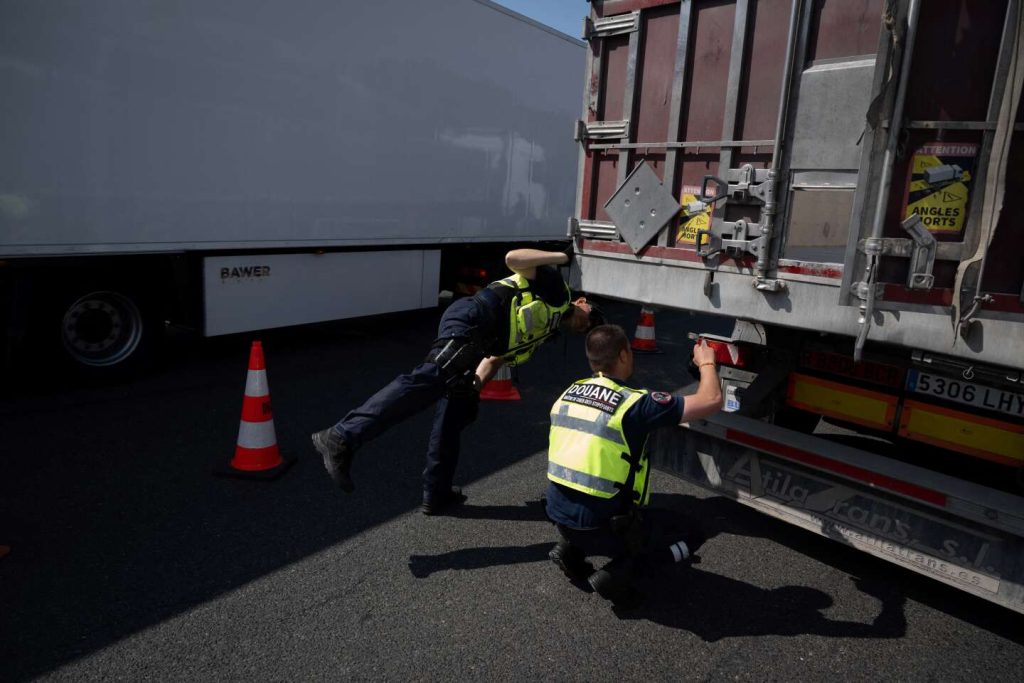Customs officers are conducting vehicle checks at the toll booth in Beynost, near Lyon, during Operation Colbert on June 1, 2023. A truck loaded with salads was stopped for an unexpected check near the Spanish border. The routine search revealed that the cargo of curly lettuce in the fifth row of pallets had actually been replaced with 9 tons of contraband tobacco. This seizure is one of the largest ever made as part of Operation Colbert II, targeting tobacco trafficking across France. The total results of this operation, dubbed “historic” by the authorities, include a total of 27 tons of illicit goods confiscated between March 20th and 27th, revealing the methods of opportunistic criminal groups capable of trafficking tobacco and drugs using similar routes and techniques.
Operation Colbert II also led to 108 arrests and 52 requests for administrative closures of businesses. While Operation “Place Net” targeting drug trafficking dominated the media, Operation Colbert II was carried out quietly. It could have been more extensive if some operations had not been canceled or scaled down due to the mobilization of personnel, including law enforcement, for Operation “Place Net.” According to several customs officers and police officers, the implementation of Operation Colbert II faced challenges related to resource allocation.
According to Thomas Cazenave, Minister of Public Accounts, the fight against tobacco trafficking involves similar methods as the fight against drug trafficking. Three major challenges include combating organized crime, reducing the billions of euros in annual revenue losses, and protecting the 23,000 tobacco retailers facing unfair competition. Recent cases show that criminal organizations in France, including South American groups, are using tobacco as a way to diversify their income. This “ant trafficking” involves small quantities at the retail level and is supported by industrial supply chains such as convoys and large warehouses.
Corinne Cléostrate, Deputy Director for Fraud Control at the Directorate General of Customs, highlights the use of tobacco by criminal organizations as a means of revenue diversification. This involves a segmented distribution of small quantities by retailers, supported by industrial supply chain operations such as using semi-trailers and large warehouses. The illicit tobacco trade poses a significant challenge to law enforcement and poses a threat to public health due to the involvement of criminal organizations in the distribution and sale of contraband tobacco products.
In conclusion, the success of Operation Colbert II in seizing significant amounts of contraband tobacco highlights the ongoing challenges posed by organized crime groups engaged in illicit trade activities. The authorities continue to face difficulties in tracking and intercepting these activities, which also have implications for public health and revenue loss for the government. Efforts to combat tobacco trafficking will require continued collaboration between law enforcement agencies and international partners to disrupt the operations of criminal organizations involved in this illicit trade.


